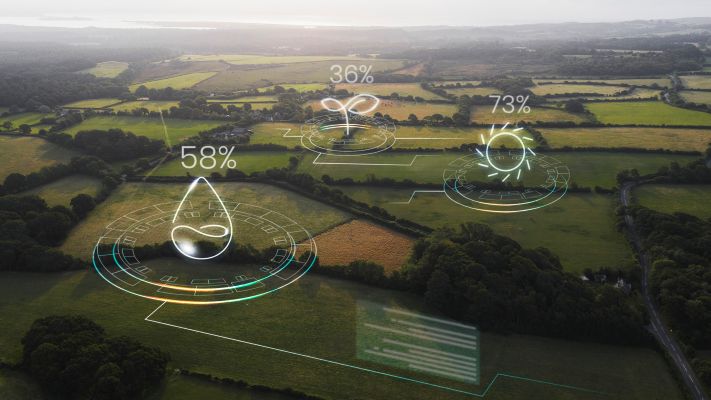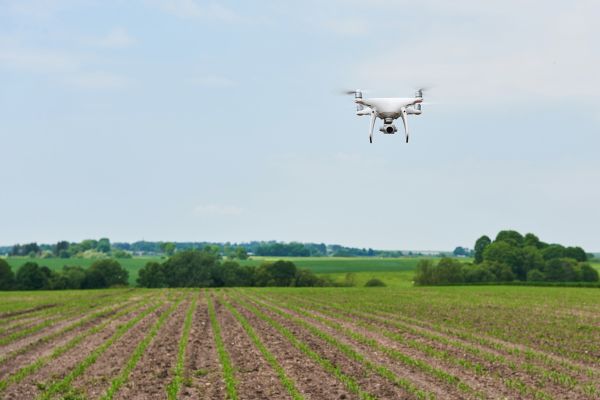The Middle East, covering almost 7.3 million km2 and with an estimated population of more than 500 million, is one of the world’s key regions. Yet it is also fraught with challenges. On top of the armed conflicts in some areas which are impacting the World Bank’s growth forecasts, there is also a rise in temperatures triggered by climate change which, in the last decade alone, has almost doubled the global average: 0.45º C compared to 0.27º C, respectively.
Climate change has a number of adverse effects on the environment which vary in severity and scope depending on the region. These impacts are even more acute in the Middle East. Rising global temperatures, changes in precipitation patterns, and extreme weather events threaten food security as they alter crop cycles, heightening the risk of droughts and extreme rainfall, and shifting the distribution of pests and diseases.
Against this background, one of the main levers of change is digital transformation of irrigated agriculture. Begoña Tarrazona, Irrigation Specialist at Idrica, says that agriculture “plays an essential role in global food security yet can also help to renew and improve the air by harnessing practices that promote soil health, carbon sequestration, and pollution reduction. The solution is to balance food production with respect for the environment, which is crucial for the wellbeing of the planet and future generations.”
KEY TECHNOLOGIES FOR DIGITALIZING AGRICULTURE
Despite these challenges, some countries in the region have been able to turn these constraints into opportunities by adopting digital technologies, thereby transforming agriculture in arid environments.
Examples include progress made by countries such as Israel, recognized for its highly developed agricultural industry which has enabled it to become a world leader in agricultural technologies; Saudi Arabia, which over recent decades has invested in sustainable agriculture projects tapping into technology to grow crops in the desert and lessen reliance on imports; and the United Arab Emirates, which has embraced technologies such as hydroponics and vertical farming to increase local production and enhance food security.
Christian Pérez, Senior Business Development Manager—Digital, Middle East and Turkey at Xylem, notes that the digital transformation of the agricultural sector “is not a luxury in the Middle East but rather a pressing need to ensure sustainability, food security, and self-sufficiency.”
From Xylem Vue point out that the digital transformation of irrigated agriculture in the Middle East hinges on four critical and innovative technologies to upgrade the industry:
IoT (Internet of Things) sensors. These sensors monitor variables including soil moisture and plant health in real time, enabling precise, highly efficient management. According to Tarrazona, “digital transformation is a huge stride forward towards guaranteeing sustainability and reducing water stress. It is essential to deploy sensors that provide us with real-time data on irrigation infrastructures and enable us to harness new technologies to help make decisions and optimize resources and processes.”
Smart irrigation. The FAO points to “enhanced irrigation management to support production intensification and diversification whilst reducing resource degradation” as a key strategy. Smart irrigation is anchored in systems that automatically match water supply to the specific needs of each crop in each area, thus reducing over-irrigation and percolation as well as preventing the carry-over of essential nutrients and salts from the soil. This also avoids salt build-up on the surface and optimizes the water footprint.
Satellite imagery and drones. They furnish detailed information on crop conditions, enabling early detection of problems and efficient resource planning.
Artificial intelligence (AI). Building data from sensors deployed in irrigation infrastructures and in the field into big data platforms enables AI-powered big data analysis. This facilitates the identification of behavioral patterns and trends, optimizing agricultural processes and resources, improving resource use, boosting productivity, and helping decision-making in real time.
DIRECT BENEFITS OF DIGITAL TRANSFORMATION
The implementation of these technologies has generated multiple benefits in the region for the Xylem Vue platform, which was born out of the partnership between Xylem and Idrica:
Water use optimization. Uptake of smart irrigation systems and hydroponics has enabled more efficient management of water, a scarce resource in the region. An example of this is Morocco, which has implemented hydroponics to deal with drought and ramp up agricultural production.
Increased productivity. Using cutting-edge technologies has raised agricultural yields, enabling countries such as Israel to be self-sufficient in most of their food needs and turn into agricultural product exporters.
Environmental sustainability. Digital farming practices minimize the use of chemical inputs and optimize the use of resources, helping to look after the environment.
Food security. Uptake of agricultural technologies has increased the capacity of countries in the region to produce food locally, thus lessening reliance on imports and improving food security.
Digital transformation of irrigated agriculture in the Middle East underscores how innovation can meet environmental challenges and ensure a sustainable future for the region. As technology continues to move forward, digital agriculture is likely to play an even more crucial role in adapting to climate change and driving food security in desert environments.
Xylem Vue is a secure, integrated and agnostic software and analytics platform that can capture data from any source, including legacy solutions. Based in valencia, Spain. It was developed as a result of the partnership between Xylem, a global leader in water technology, and Idrica, an international pioneer in water data management, analytics and smart water solutions. This platform enables water utilities to maximize the investments they have already made in existing technologies as they advance on their digital journey and break down data silos to provide a holistic 360-degree overview of their system. This alliance brings together Xylem and Idrica’s technology, innovation and experience to solve critical global challenges in drinking water, wastewater and other water-related issues.








